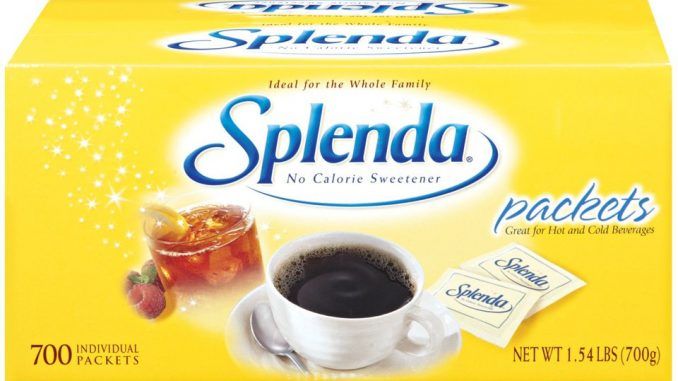
An Italian study has linked the artificial sweetener Sucralose, sold as Splenda, to higher risks for leukemia.
Researchers say that people should not be using the artificial sweetener, warning of an increased risk for leukemia, as well as an overall risk for cancer.
UPI reports:

BYPASS THE CENSORS
Sign up to get unfiltered news delivered straight to your inbox.
You can unsubscribe any time. By subscribing you agree to our Terms of Use
Scientists found Splenda significantly increased the risk for leukemia, as well as other cancers, research that is in line with other studies in recent years.
Splenda, or sucralose, was introduced in 1999 as an alternative to other artificial sweeteners shown to cause health issues, as well as to sugar, which is linked to increased risk for many conditions. Most studies, including those done by the sweetener’s manufacturer, have not shown it can cause cancer.
In 2013, food advocates downgraded Splenda from “safe” to “caution” because of a previous study conducted at the Ramazzini Institute, which also conducted the new one.
“And even if you consume less, that doesn’t mean there’s no problem,” Lisa Lefferts, a scientist at the Center for Science in the Public Interest, told EatClean.com. “When something causes cancer at high doses, it generally causes cancer at lower doses, the risk is just smaller.”
For the new study, published in the International Journal of Occupational and Environmental Health, researchers fed 457 male mice and 396 female mice 0; 500; 2,000; 8,000; or 16,000 ppm of sucralose added to their feed from 12 days of gestation through death.
The researchers found an overall increased incidence of malignant cancer in male mice with increasing amounts of Splenda in the rodents’ diets. They also found significantly increased incidence of leukemia in male mice, especially at 2,000 ppm and 16,000 ppm.
“These findings do not support previous data that sucralose is biologically inert,” researchers wrote in the study. “More studies are necessary to show the safety of sucralose, including new and more adequate carcinogenic bioassay on rats. Considering that millions of people are likely exposed, follow-up studies are urgent.”
Edmondo Burr
CEO
Assistant Editor
Latest posts by Edmondo Burr (see all)
- Police Arrest Suspect In Supermarket Baby Food Poisoning - October 1, 2017
- Seoul Secures Data From Electromagnetic Interference By N Korea - September 30, 2017
- The ‘World’s First Internet War’ Has Begun: Julian Assange - September 30, 2017

Be the first to comment